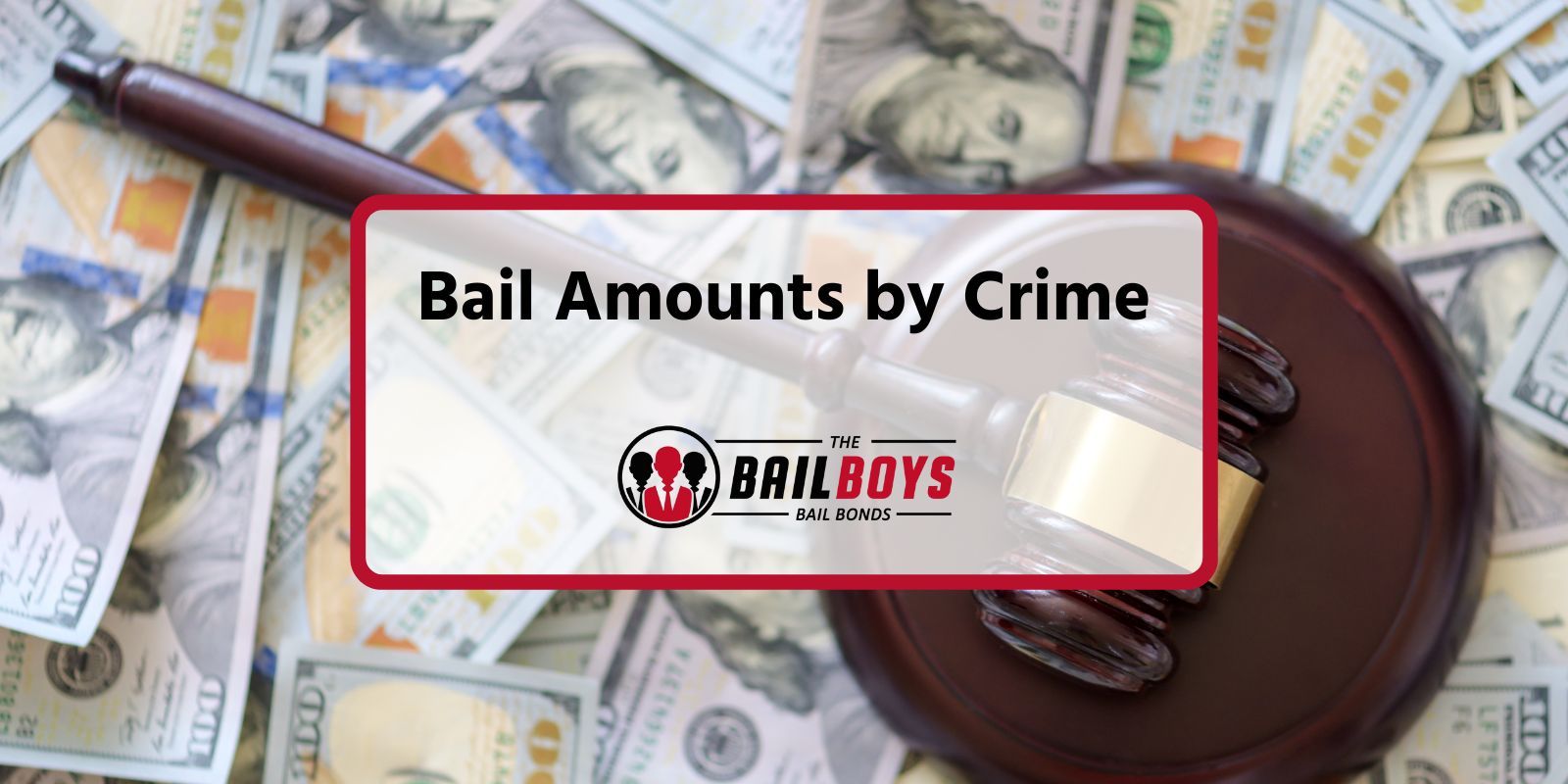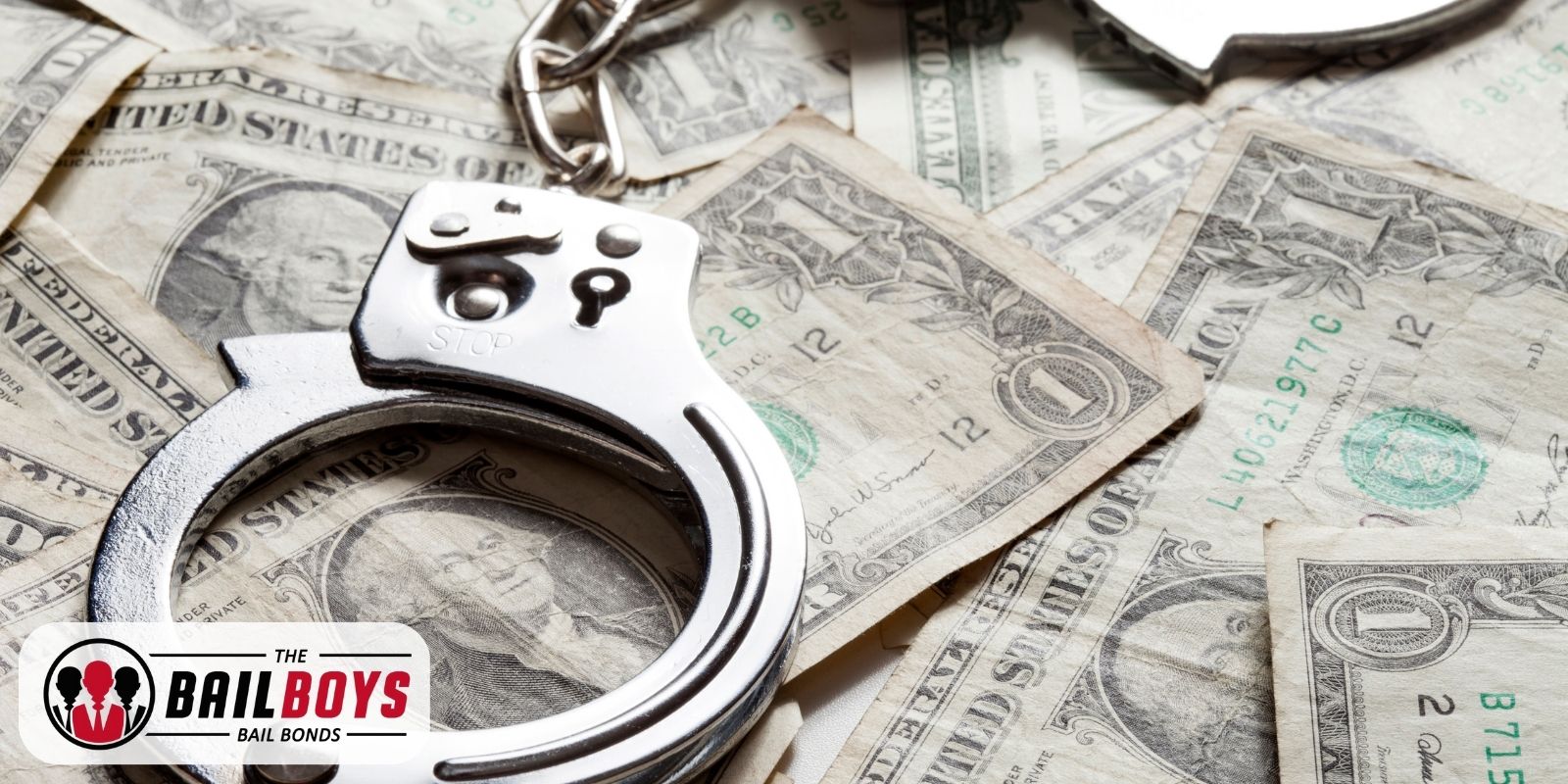
Bail Amounts by Crime
Navigating the criminal justice system can be challenging, especially when it comes to understanding how bail works. One of the most common questions people have is how bail amounts are determined based on the crime committed. In this article, we’ll dive into the world of bail, discuss factors that influence bail amounts, and examine specific bail amounts for various crimes.
To learn more about your options for posting bail and how to bail someone out of jail with little to no money, call us at (800) 798-7366 or contact us online.
Understanding Bail
Before discussing bail amounts by crime, it’s essential to understand what bail is and its purpose within the criminal justice system.
Purpose of Bail
Bail is a monetary guarantee that a defendant will return to court for their scheduled hearings and trial. It serves as collateral to ensure that the accused follows the court’s orders and does not pose a flight risk or danger to the community.
Factors Influencing Bail Amounts
Judges consider several factors when determining bail amounts. These factors include the nature and severity of the crime, the defendant’s criminal history, their employment and ties to the community, and whether they pose a flight risk. Each jurisdiction has its own bail schedule, which provides guidelines for judges to follow when setting bail amounts.
Bail Amounts by Crime Category
Bail amounts vary based on the category of the crime committed. Generally, crimes fall into two main categories: misdemeanors and felonies.
Misdemeanors
Misdemeanors are less serious crimes that typically carry lesser penalties, including fines and up to one year in jail. As a result, bail amounts for misdemeanors are usually lower than those for felonies.
Felonies
Felonies are more severe crimes that carry harsher penalties, including imprisonment for more than a year. Because of the increased severity, bail amounts for felonies are often significantly higher than those for misdemeanors.
Specific Bail Amounts for Common Crimes
While bail schedules vary by jurisdiction, some general trends can be observed for specific crimes:
DUI (Driving Under the Influence)
Bail for DUI offenses typically ranges from $500 to $10,000, depending on the circumstances and the defendant’s previous DUI convictions.
Drug Offenses
Drug offenses can involve possession, distribution, or manufacturing of illegal substances. Bail amounts for these crimes vary widely based on the type and quantity of drugs involved and the defendant’s criminal history. For example, bail for simple possession might range from $1,000 to $5,000, while more serious offenses like drug trafficking can see bail amounts in excess of $100,000.
Theft
Theft-related offenses encompass a wide range of crimes, from shoplifting to grand theft auto. Bail amounts depend on the value of the stolen property and the defendant’s criminal history. For example, bail for petty theft might be as low as $500, while bail for grand theft can range from $5,000 to $50,000 or more.
Assault
Assault charges can range from simple assault to aggravated assault with a deadly weapon. Bail amounts for assault crimes typically start at around $1,000 for a simple assault and can go up to $50,000 or more for more severe cases, such as those involving serious bodily harm or the use of a deadly weapon.
Domestic Violence
Domestic violence charges often carry higher bail amounts due to the potential risk to the victim. Bail for domestic violence offenses can range from $5,000 to $50,000 or more, depending on the severity of the crime and any previous domestic violence convictions.
Sex Crimes
Sex crimes, such as sexual assault and child pornography, are taken very seriously by the criminal justice system. Bail amounts for these offenses can be quite high, often starting at $25,000 and going up to $500,000 or more in extreme cases.
The Role of Bail Bondsmen
In cases where defendants cannot afford to pay their bail in full, they may turn to a bail bondsman for assistance. Bail bondsmen charge a fee, typically around 10% of the total bail amount, and provide a guarantee to the court that the defendant will appear for their scheduled hearings. If the defendant fails to appear, the bail bondsman is responsible for the full bail amount.
Bail Reform and Alternatives
There has been growing concern over the fairness and effectiveness of the cash bail system, particularly regarding its impact on low-income defendants. In response, some jurisdictions have implemented bail reform measures, such as pretrial release programs and risk assessment tools, to help determine a defendant’s eligibility for release without requiring cash bail.
Conclusion
Bail amounts by crime can vary significantly based on the nature and severity of the offense, the defendant’s criminal history, and the jurisdiction in which the crime occurred. Understanding these factors and working with a knowledgeable bail bondsman can help defendants and their families navigate the complex world of bail and the criminal justice system.
Bail Amounts By Crime FAQs
1. Do all crimes have a bail amount?
Not all crimes have a bail amount. In some cases, such as certain violent crimes or when the defendant poses a significant flight risk, a judge may deny bail altogether.
2. Can a bail amount be negotiated?
Yes, a defense attorney can request a bail reduction hearing to argue for a lower bail amount based on the defendant’s circumstances and the nature of the crime.
3. Do I get my bail money back if I’m found not guilty?
Yes, if the defendant appears for all court proceedings and is found not guilty, the bail money is returned, minus any court fees or fines.
4. What happens if I can’t afford to pay my bail?
If you can’t afford to pay your bail, you can seek the assistance of a bail bondsman, who will charge a fee and provide a guarantee to the court that you will appear for your scheduled hearings.
5. Are there alternatives to cash bail?
Some jurisdictions offer alternatives to cash bail, such as pretrial release programs and risk assessment tools, which help determine a defendant’s eligibility for release without requiring cash bail.







